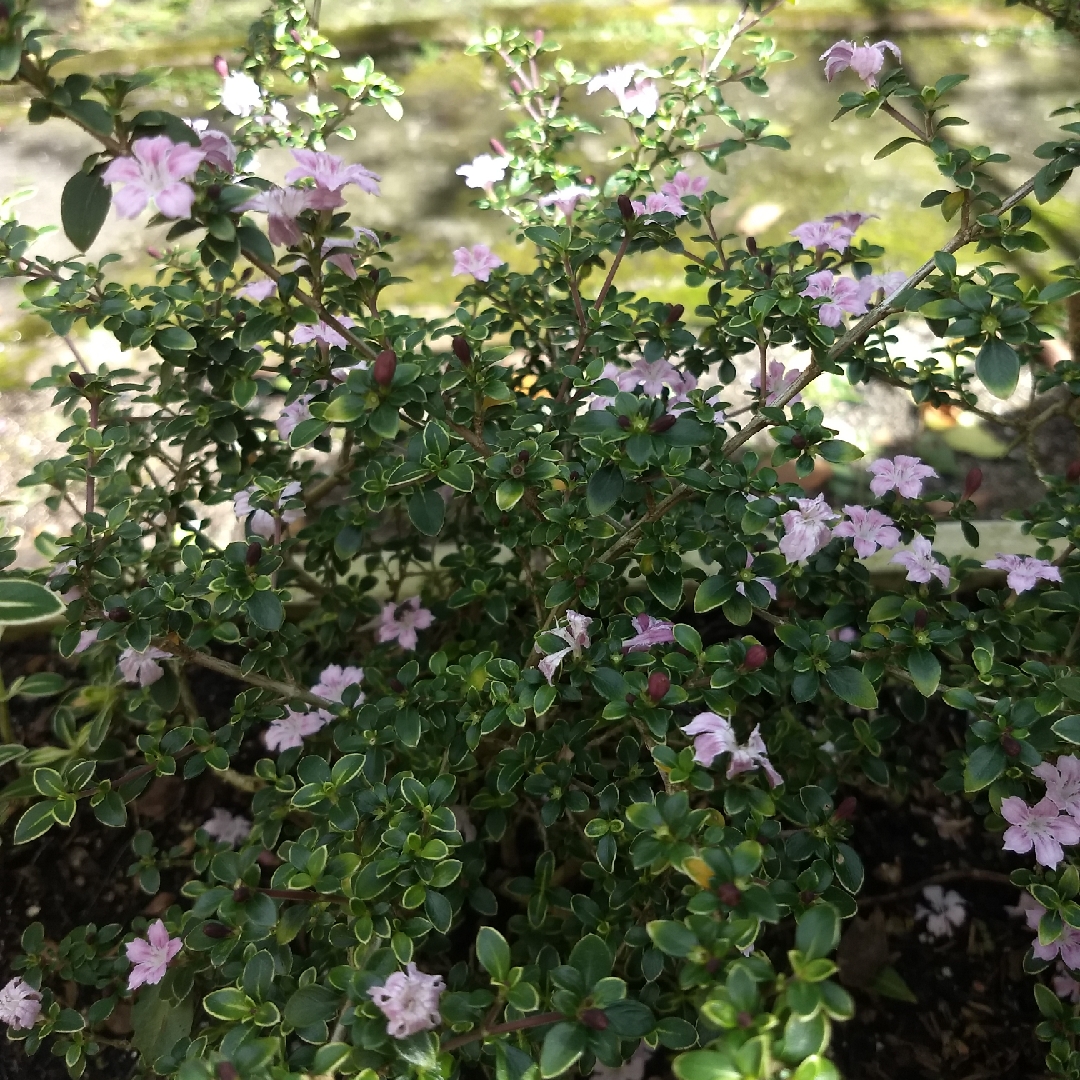
Cuphea gracilis
Falsa Érica
Cuphea is native to warm temperate to tropical regions. The species range from low-growing herbaceous plants to semi-woody shrubs up to 2m tall. Cupheas bloom from spring through autumn. Perennial Cupheas are frost tender plants. With heavy mulching, they may survive cold winters but will die back to the roots. In cold regions, the plants are grown as annuals or in pots so they can be brought indoors in autumn and treated as house plants.
Contributed by @cleg
-
Full sun
-
Occasional watering
-
A little frost hardy: 32F (0°C)
-
Rich and free draining
Common name
Falsa Érica
Latin name
Cuphea gracilis
type
Tender perennial
family
Lythraceae
ph
6.0 - 7.5 Acid - Neutral
Plant & bloom calendar
-
Best time to plant
full grown dimensions
 0.45 M
1.00 M
0.45 M
1.00 M
Cuphea gracilis
Cuphea is native to warm temperate to tropical regions. The species range from low-growing herbaceous plants to semi-woody shrubs up to 2m tall. Cupheas bloom from spring through autumn. Perennial Cupheas are frost tender plants. With heavy mulching, they may survive cold winters but will die back to the roots. In cold regions, the plants are grown as annuals or in pots so they can be brought indoors in autumn and treated as house plants.
Planting young plants
From Early Spring TO Early Spring
Cupheas grow best when they are planted in full, bright sun but are quite happy to have periods of light shade during heat of the afternoon. Plant your Cuphea in light, compost rich, well-drained soil. Water regularly and thoroughly until they are well established, then watering can be reduced somewhat. Alternatively grow in a pot under glass or as a houseplant. Indoors, grow in full light and moderate humidity. Protect from strong sun. Tip prune for bushy growth.
Propagation by cuttings
From Early Spring TO Early Summer
Take soft wood cuttings in spring to early summer. Cleanly cut up to a 10 cm long stems, remove lower leaves and pinch the tip out, dip the stem into rooting hormone, fill a container/pot with suitable compost, make holes around the edge of it and plant the cuttings, water in well, cover with a polythene bag and place somewhere warm, lake the bag off twice a week to air the cuttings. Keep the cuttings moist until well rooted.Harden off when well rooted and pot on into individual pots increasing the airing to let the leaves to develop. Remove rotten, dying or dead cuttings regularly.









